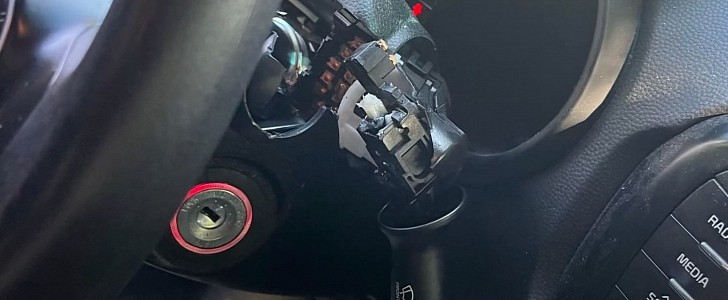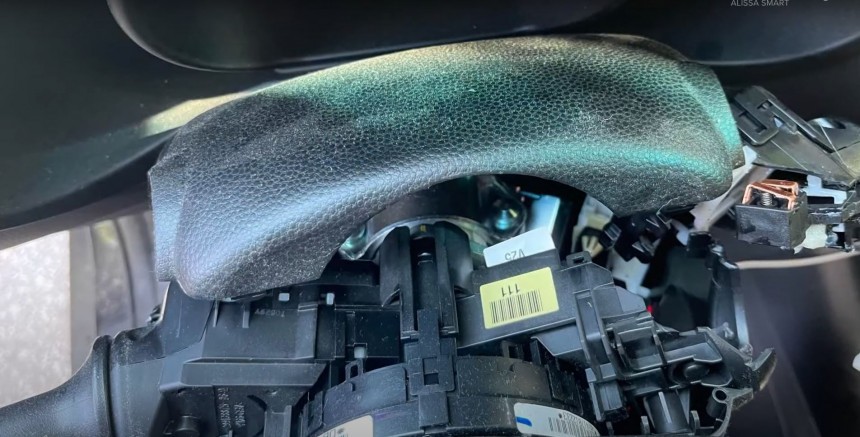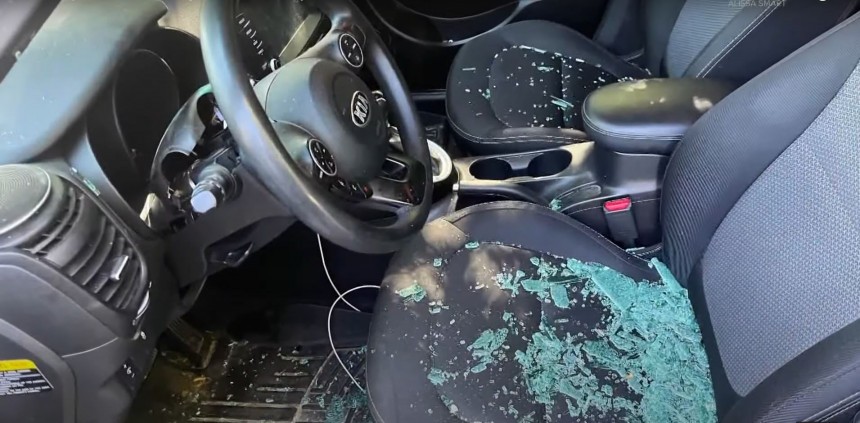Hyundai and Kia vehicles have become a preferred target of thieves because most of them lack a piece of hardware designed to prevent engine start in the absence of the original key. After 15 class-action lawsuits have been filed in 14 states, Hyundai tries to appease disgruntled owners with a $170 security kit.
Unless you’ve been living under a rock, you know that Hyundai and Kia cars have become the most stolen vehicles in the U.S. for the 2015-2019 category, according to IIHSS-HLDI. The reason is that both Korean automakers wanted to save some bucks and did not install electronic immobilizers in many of their vehicles. This backfired after thieves discovered how easy it is to start the engine and drive off with a Kia or a Hyundai.
Social media has been filled with videos describing the simple procedure of starting a Kia or a Hyundai. There’s even a TikTok challenge called “Kia Challenge,” rallying teenagers into stealing Korean cars. Kia Boyz is the name of a crime ring spreading like fire across the U.S., stealing Kia and Hyundai vehicles. This has pissed the owners, and many banded together to file class-action lawsuits, demanding Hyundai and Kia fix their problem or pay dearly.
The two companies initially tried to dodge the bullet by claiming that their vehicles complied with all the legal requirements. Then they started distributing free steering wheel locks to areas most impacted by theft. Hyundai was brave enough to advise affected owners to buy and install a security kit at an authorized dealer. At their own expense, of course. Experts estimated the cost of the device at around $200, with another $500 for the installation.
Now, Hyundai announced that the security devices have been shipped to dealers and are ready to be installed for $170 plus labor costs, which vary depending on the dealer. All 820 Hyundai dealers in the U.S. are authorized to install the kit, the company said on Friday, without providing a total cost estimate.
“The dealers have been notified and are currently receiving training bulletins and instructions on how to perform the installation, which will take about 2.5 hours to complete,” Ira Gabriel, a spokesperson for Hyundai, told Automotive News. “The kits are at our distribution centers, which are located around the country, so they’ll have it in inventory this week.”
Hyundai is also working on a software update to secure targeted vehicles. The software fix should be available starting in the first half of 2023. The list of affected Hyundai models includes certain 2016-21 model year Accent, Elantra, Elantra GT, Sonata, Veloster, Venue, Kona, Tucson, Santa Fe, Santa Fe Sport, Santa Fe XL, and Palisade vehicles that use a steel key and do not have an engine immobilizer.
This is still far from the right solution, which is to recall all affected vehicles and install the missing immobilizer. It is unclear how many would follow Hyundai’s recommendations, considering that a lot of affected cars are almost a decade old. Many owners are low-income and have likely bought their vehicles from the used-car market. They could not afford the costs of the security kit installation, even if they wanted.
In the meantime, the class-action lawsuits are moving forward in 14 U.S. states, with possibly more to be filed. Those cases will likely get a nationwide solution, considering the rapidity with which the issues have spread and the number of cases reported. The result could be very costly for the two Korean companies. Experts estimate that around 10 million Hyundai and Kia vehicles are affected, a number that should scare anyone. Even a small compensation awarded to the plaintiffs could seriously impact the bottom line of both Kia and Hyundai.
Social media has been filled with videos describing the simple procedure of starting a Kia or a Hyundai. There’s even a TikTok challenge called “Kia Challenge,” rallying teenagers into stealing Korean cars. Kia Boyz is the name of a crime ring spreading like fire across the U.S., stealing Kia and Hyundai vehicles. This has pissed the owners, and many banded together to file class-action lawsuits, demanding Hyundai and Kia fix their problem or pay dearly.
The two companies initially tried to dodge the bullet by claiming that their vehicles complied with all the legal requirements. Then they started distributing free steering wheel locks to areas most impacted by theft. Hyundai was brave enough to advise affected owners to buy and install a security kit at an authorized dealer. At their own expense, of course. Experts estimated the cost of the device at around $200, with another $500 for the installation.
“The dealers have been notified and are currently receiving training bulletins and instructions on how to perform the installation, which will take about 2.5 hours to complete,” Ira Gabriel, a spokesperson for Hyundai, told Automotive News. “The kits are at our distribution centers, which are located around the country, so they’ll have it in inventory this week.”
Hyundai is also working on a software update to secure targeted vehicles. The software fix should be available starting in the first half of 2023. The list of affected Hyundai models includes certain 2016-21 model year Accent, Elantra, Elantra GT, Sonata, Veloster, Venue, Kona, Tucson, Santa Fe, Santa Fe Sport, Santa Fe XL, and Palisade vehicles that use a steel key and do not have an engine immobilizer.
In the meantime, the class-action lawsuits are moving forward in 14 U.S. states, with possibly more to be filed. Those cases will likely get a nationwide solution, considering the rapidity with which the issues have spread and the number of cases reported. The result could be very costly for the two Korean companies. Experts estimate that around 10 million Hyundai and Kia vehicles are affected, a number that should scare anyone. Even a small compensation awarded to the plaintiffs could seriously impact the bottom line of both Kia and Hyundai.









